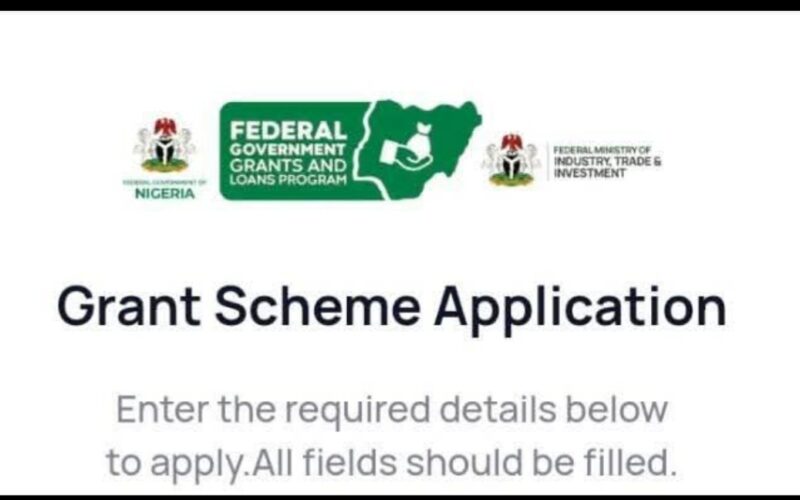Federal government grants serve as crucial financial assistance programs that support individuals, businesses, non-profits, and research institutions in achieving economic growth, innovation, and public service goals. These grants are not loans and do not require repayment, making them an excellent source of funding for various sectors, including education, healthcare, housing, small businesses, and scientific research.
In this article, we will explore the different types of federal grants available in 2025, eligibility criteria, application procedures, deadlines, and tips to increase your chances of securing funding.
What Are Federal Government Grants?
Federal government grants are financial awards provided by the U.S. government to support specific projects and initiatives that align with public interest goals. These grants can be awarded to:
- Individuals (students, researchers, low-income citizens, etc.)
- Small businesses and startups
- Non-profit organizations
- Educational institutions
- State and local governments
- Research institutions
Key Features of Federal Grants:
- Non-repayable: Unlike loans, grants do not require repayment.
- Purpose-driven: Must be used for the intended purpose outlined in the grant application.
- Competitive application process: Applicants must meet strict eligibility criteria.
- Government-funded: Provided by federal agencies such as the Department of Education (DOE), National Institutes of Health (NIH), Small Business Administration (SBA), and more.
Types of Federal Government Grants Available in 2025
1. Education Grants
- Pell Grant: Provides need-based funding for undergraduate students.
- Federal Supplemental Educational Opportunity Grant (FSEOG): Additional aid for low-income students.
- TEACH Grant: Supports students pursuing a teaching career.
- Graduate Research Fellowships: Funding for postgraduate students in research-intensive fields.
- Application Deadline: Varies by program.
2. Small Business Grants
- Small Business Innovation Research (SBIR) Grant: Encourages small businesses to engage in federal R&D projects.
- Small Business Technology Transfer (STTR) Grant: Supports tech-based innovation and commercialization.
- Minority Business Development Agency (MBDA) Grants: Aimed at supporting businesses owned by minorities.
- Women-Owned Business Grants: Assistance for female entrepreneurs.
- Application Deadline: Typically rolling applications or annual deadlines.
3. Housing and Urban Development Grants
- HUD Community Development Block Grant (CDBG): Supports local housing, economic development, and infrastructure projects.
- Housing Choice Voucher Program (Section 8): Provides rent assistance for low-income families.
- Home Investment Partnerships Program (HOME): Funds affordable housing development.
- Application Deadline: Varies based on the program and state.
4. Healthcare and Medical Research Grants
- National Institutes of Health (NIH) Research Grants: Funds medical and scientific research.
- Centers for Disease Control and Prevention (CDC) Grants: Supports public health initiatives.
- Substance Abuse and Mental Health Services Administration (SAMHSA) Grants: Funds mental health programs.
- Application Deadline: Varies by grant.
5. Environmental and Energy Grants
- Department of Energy (DOE) Grants: Supports renewable energy projects.
- Environmental Protection Agency (EPA) Grants: Funds environmental conservation efforts.
- Rural Energy for America Program (REAP): Provides funding for renewable energy installations in rural areas.
- Application Deadline: Annual deadlines or rolling applications.
6. Non-Profit and Community Development Grants
- AmeriCorps Grants: Funds community service projects.
- National Endowment for the Arts (NEA) Grants: Supports artistic and cultural projects.
- Social Services Block Grant (SSBG): Funds social welfare programs.
- Application Deadline: Varies per program.
How to Apply for Federal Government Grants in 2025
Step 1: Identify the Right Grant
- Visit Grants.gov to browse available grant programs.
- Read eligibility requirements carefully.
- Determine if you meet the qualifications before applying.
Step 2: Register on Grants.gov
- Create an account at https://www.grants.gov.
- Obtain a Unique Entity Identifier (UEI) if applying on behalf of an organization.
- Ensure you have a Taxpayer Identification Number (TIN) or Employer Identification Number (EIN).
Step 3: Prepare Your Grant Proposal
- Write a detailed project proposal outlining objectives, budget, timeline, and impact.
- Gather supporting documents (financial statements, tax records, etc.).
- Get strong letters of recommendation (if applicable).
Step 4: Submit Your Application
- Follow all submission guidelines provided by the grant agency.
- Double-check for errors before submission.
- Submit your application before the deadline.
Step 5: Monitor Application Status
- Track your application status on Grants.gov.
- Respond promptly to any requests for additional information.
- Be patient, as review periods can take months.
Tips to Increase Your Chances of Getting a Federal Grant
- Start early: Begin your application well in advance.
- Follow instructions carefully: Failure to meet guidelines can result in disqualification.
- Seek expert advice: Consult grant writing professionals if needed.
- Demonstrate impact: Clearly explain how the grant will benefit the community or research field.
- Apply for multiple grants: Increase your chances by applying for several programs.
Federal government grants in 2025 offer significant financial opportunities for students, businesses, researchers, and community organizations. By understanding the various grant types, eligibility criteria, and application process, you can improve your chances of securing funding for your education, business, or social initiatives.
For the latest updates and to start your grant application, visit https://www.grants.gov.

